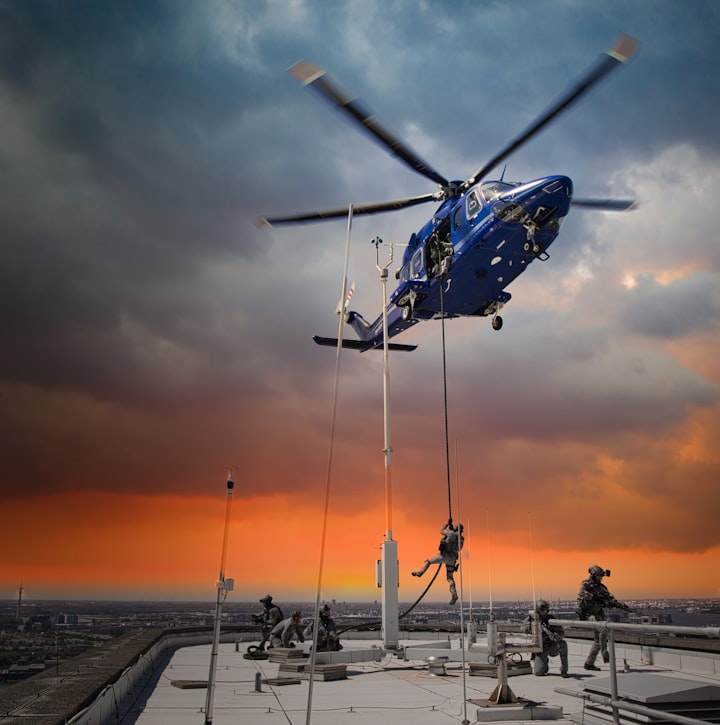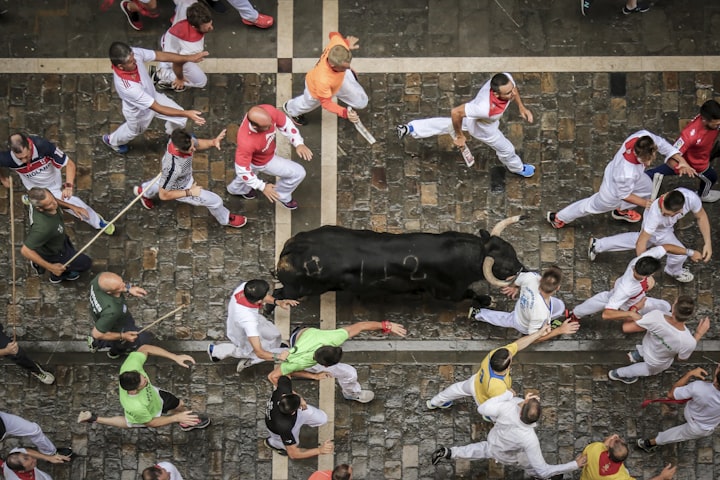Green Is For Go
Overwhelming force is sometimes what you need

Captain Kellaway toggled the joystick, and on the other side of the bulkhead, the camera tracked slowly from the ship's bow to the stern. There were no people visible on deck and no lights other than the vessel's own. Some waves were topped with white foam that the camera picked up, but there was mainly little to see at sea. It was four hours since the attempted hijack and kidnapping.
The Captain knew they had to be close. Her navigator confirmed this, and the dead reckoning for speed and distance travelled closely matched the information from the ships onboard autopilot. They should be just a couple of nautical miles from the channel into Djioubti harbour, the largest and safest port on the Horn of Africa.
Squeezed in between Ethiopia to the north and Sudan to the south, Djioubti was not only an important port, but it was also home to a large US Naval base. As well as this, there was a base for the Russian Federation Navy, the most extensive French naval base outside France, units from the German and Italian Navy and, nearby, a base for the Chinese People's Liberation Army Navy!
Kellaway looked around. Her whole crew of nine were here in the citadel. This armoured and protected space was doing what it had been – expensively – constructed to do. The British owners of the Africa Star had paid a significant price to build a safe space on the ship to which the crew could go if the kidnappers were threatening them. The ships' officers had ensured they had trained all of the team in using the citadel. That training had paid off last evening when, just as dusk was falling, two speedboats has started quickly to approach them from the coast of Somalia, past which the Africa Star was sailing.
However, the citadel was only expensive until you calculated the cost of paying ransom for the crew. When you took that into account, citadel costs were minor.
By the time the pirates and would-be kidnappers came alongside the Panamanian-registered Africa Star, most of the crew were safely ensconced in the citadel and protected from anything short of mortar fire. The Captain had sent a message to the US Naval Base in Djioubti, received a response, and then switched on a device that would suppress radio and cell phone signals. Her last job was to switch navigational control from the bridge to the citadel, and she had done that and was running to the citadel as the first pirate reached the upper deck. By the time that man had got his AK47 off his shoulder, Kelleway had arrived at the safe room. The crew members slammed the door shut behind her. The other pirates swarmed aboard from their small craft and found they had free run of the ship, except there was no crew to greet them, and they could not alter the direction or speed they were sailing. The attackers also found that they could not make or receive cell phone calls.
Kellaway had deliberately left the spirits locker unlocked. After wandering around the ship for 30 minutes, most of the pirates had availed themselves of liquor, and three of the seven were currently passed-out drunk in the crew lounge. The remaining four were at least inebriated.
Glancing again at the screen, Kellaway could see a green light off the ship's right (starboard) side: A channel marker light. They were there, at the entrance to the channel. The Captain knew, if she switched to the camera on the left (port) side of the ship, she would see the red channel marker showing the other side of the channel.
Kate Kelleway gave a quiet command, and the helmsman entered some new instructions into the navigational computer. A course alteration and speed reduction saw the Africa Star start to turn a dead slow anti-clockwise circle, right at the entrance to the port approach. The Captain started a count-down timer when the circling began, and the crew grew silent, waiting for the 15-minute timer to reach zero.
When the 'time-up' tone sounded, Kelleway gave another order, and the navigator pressed a single switch that cut power throughout the ship. All lights went off, and the speed started to bleed away. None of the crew was outside to see it, but their cameras showed them that the upper decks were in darkness. No one could see the two military rigid inflatable boats (RIBS) that came up along either side of the Africa Star and hooked on. No one noticed the black-clad special forces troopers who used grappling hooks and lines to scale the vessel's side and bring them onto the upper deck.
Having checked that the upper deck was secure, the military team leader on the ship radioed a terse signal and four helicopters – two Merlins and two Wildcats – quickly arrived and entered a hover over the boat. With the Wildcats there to offer suppressing fire support if needed, the remainder of the assault crew abseiled from the hovering Merlin's and onto the deck.
Sixteen British Special Boat Service (SBS) special forces personnel were now on board. They moved quickly off the deck and into the enclosed spaces on the ship.
The British military had scrambled this team once the US Navy had passed on Captain Kelleway's message four hours earlier. Having learned the vessel's layout from the ships' owners' plans, the team already had assigned search areas and began to check each compartment from stern to bow. The team was highly trained for such exercises and had been fully briefed by experts.
The troopers only took seven minutes to search the ship and find and detain the would-be pirates. The SBS used flash-bang grenades to disorientate and temporarily blind the kidnappers. Still, no one fired any live ammunition: For two of the attackers, the first they knew was to come to and find their hands bound with plastic restraints, themselves in custody. All seven were quickly taken from the Africa Star and lowered to a launch that was now alongside.
Captain Kelleway offered quiet but sincere thanks to the leaders of the assault team as she and her crew took charge once again of the Africa Star. They got underway. Their attackers were on their way to face justice.
About the Creator
Andy Killoran
British guy, recently retired so finally with time to read what I want and write when I want. Interested in almost everything, except maybe soccer and fishing. And golf. Oscar Wilde said golf ‘ruined a perfectly good walk’.






Comments
There are no comments for this story
Be the first to respond and start the conversation.